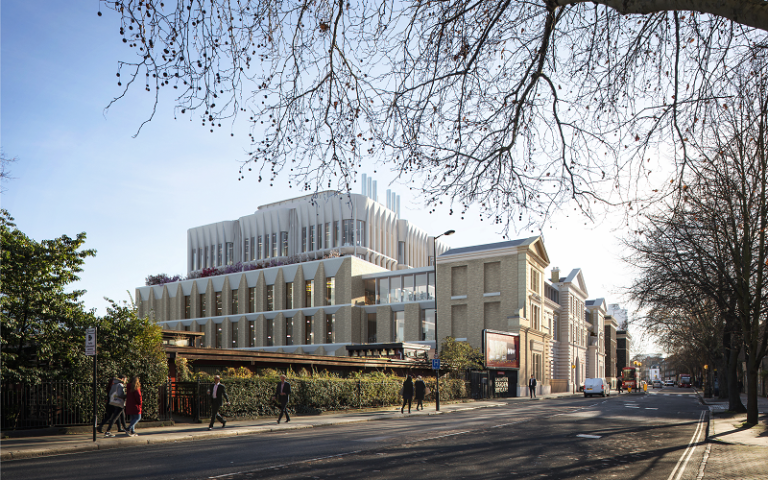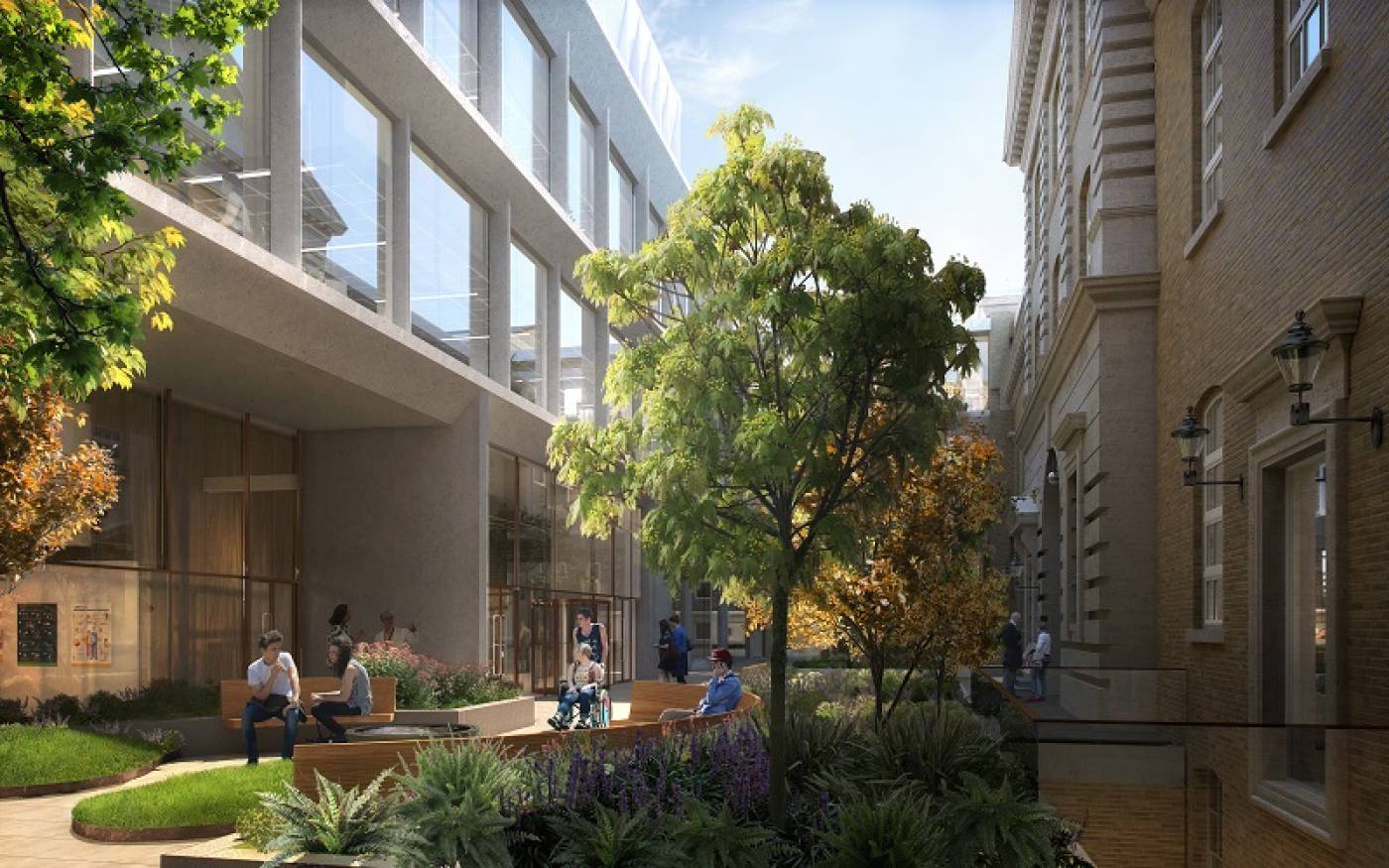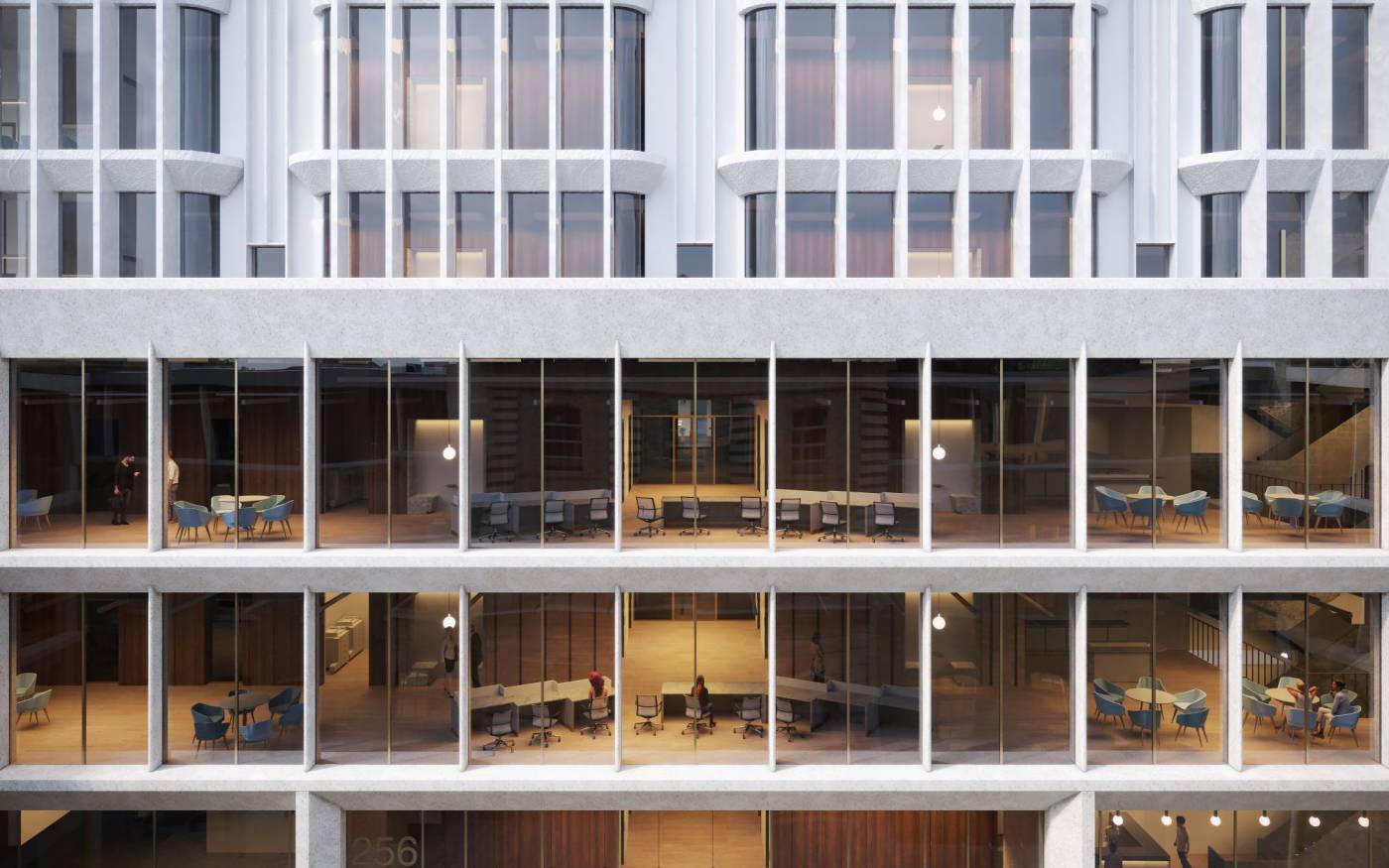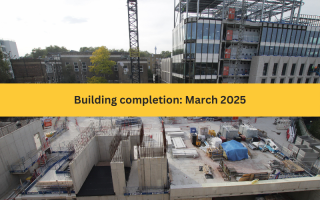256 Grays Inn Road
We are building a world-class research and treatment centre at 256 Grays Inn Road to fight neurological diseases, the world’s leading cause of disability.

4 March 2024
A digital tour of the 256 Grays Inn Site.
Project Overview
UCL’s new translational neuroscience centre (IoN/DRI) is being built on the former site of the Eastman Dental Institute and Royal Free Hospital on 256 Grays Inn Road. UCL Queen Square Institute of Neurology is partnering with the UKDRI and National Hospital for Neurology and Neurosurgery (part of University College Hospitals NHS Foundation Trust) to build a cutting-edge centre for research and treatment, behind the 19th-century façade of the original Royal Free London hospital.
256 Grays Inn Road will be one half of a new dual hub based here and at the existing Queen Square facility. ‘Translational neuroscience’ means turning research discoveries into treatments, dramatically improving patient care and outcomes. The vision of the partners in this venture is to tackle the devastating global health challenge of neurological diseases and revolutionise 21st century healthcare, bringing research scientists, clinicians and patients together to share knowledge and build deeper insights between people with neurological disorders, their doctors and the research community. Public facilities include a café, event spaces and a sensory garden. The aim is to foster a welcoming and inclusive environment, for staff, researchers, visitors and patients to enjoy.
The building is due to open in 2025, and aims to be the most comprehensive and coordinated neuroscience research hub in the world, offering outstanding care. It will benefit from the proximity to the nearby the National Hospital for Neurology and Neuroscience (NHNN) at Queen Square, where research and treatment activities will continue.
Impact
22 new outpatient rooms for the UCL NHNN and a joint UCL and UCLH MRI facility will have capacity for six MRI scanners. The scanners will be used for clinical treatment and research, significantly increasing the number of scanners available to the NHS.
The outpatient unit will provide clinical care for individuals with a whole range of neurological conditions such as stroke, dementia, epilepsy, movement disorders, and genetic, inflammatory and degenerative conditions affecting the brain, spinal cord, peripheral nerves and muscles.



From the Royal Free Hospital to the Eastman Dental Institute; a short history of public health at 256 Grays Inn Road
In 1828 the first hospital in London dedicated to providing free healthcare opened its doors at 256 Grays Inn Road. Known as the "Royal Free London", this is the original site of the hospital now based in Hampstead Heath. More recently this address has been the home of the Eastman Dental Institute which began as a clinic at the Royal Free London in the 1920s. In 1948, the Eastman became independent of the Royal Free and its teaching arm became the Postgraduate Dental Institute of the Postgraduate Medical Federation. The objectives of the Institute were to train consultants, specialists and teachers in dentistry; provide dental research facilities and provide clinical and laboratory facilities.
The Institute became part of University College London and an integral part of the Faculty of Medical Sciences in August 1999. Its work continues today at the recently refurbished Rockefeller Building on University Street in nearby Bloomsbury. The new building will blend parts of its predecessor with the new construction which is made with materials sympathetic to the original. During construction we've restored the Riddell Memorial Fountain, and the original façade of 256 Grays Inn Road will be a familiar welcoming site from the roadside.
Sustainability, Access, and Inclusion
The main ethos of the new centre is to bring patients, doctors, and researchers together in one place. The facilities have to be built not only to last but to be adaptable to new scientific and technological advances. This is the key to delivering value across the life of the building.
Values:
- Low Energy and Carbon: Achieve an exemplar low carbon development and make a significant contribution to the reduction of carbon emissions.
- Optimising Resource Use: Utilise natural resources in the most efficient and economical way possible, applying circular economy principles to minimise waste and create new business opportunities across the redevelopment site.
- Healthy and Productive Environments: Provide a healthy, comfortable, inclusive and safe building that supports visitors’ and staff wellbeing and provides the best possible environment for world-class research.
- Lifecycle Value: Understand and prepare for long-term climate change impacts and scenarios that will impact the development. Build-in adaptability, flexibility and ‘reconfigurability’, to accommodate changes in the needs of the development over time.
Architects & Contractors
The UCL Queen Square Institute of Neurology, with the UK DRI and its national network of centres and UCLH National Hospital for Neurology and Neurosurgery (NHNN), has partnered with charities like Alzheimer’s Society and Alzheimer’s Research UK, alongside the NHS, the Medical Research Council and the UK government. We have commissioned Hawkins\Brown as the architects for the site with ISG as the main contractor. We would like to thank Hawkins\Brown, ISG, and everyone who has contributed to creating 256 Grays Inn Road. We look forward to celebrating the opening of the centre in 2025.
 Close
Close


